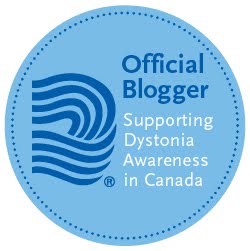The reality of life with a chronic health condition – a message for those who don’t understand
Have you ever been judged by others for the things you do or the way you live your life? I know this is a rhetorical question because we have all been judged, and we probably judge others as well. Sadly, this is part of human nature. However, with this knowing, we can be much more mindful of how we treat others and hope that they will do the same.
The reason I am talking about this is because some people, probably many people, who have a chronic health condition and have had to modify their life because of their unique health circumstances, like me, are often judged by others rather harshly, and it needs to stop.

I want to share with you some things we may hear and then some things that you can share with the people in your life so that they better understand, or at least be more understanding of why you live your life the way you do. Personally, I don’t mind if people don’t understand the pain that I live with because I know it isn’t possible for someone to feel exactly what someone else does. What is most important to me is that people are understanding that my life is different from before and I may be limited in certain ways. This gift of acceptance from others takes a ton of pressure off me. It lets me just be myself and not feel the burden of having to explain myself over and over.

For some brief background, I developed chronic pain from dystonia in 2001 and it turned my world upside down. I could barely function for years. I had to give up everything I was doing and move in with my parents for help. A tough pill to swallow at the age of 30 with my life all planned out in front of me. I lost what seemed like everything. I have since improved a lot, but I still deal with some rough symptoms. Every day I work hard to get better and better, but in those early years I wanted to give up. The pain was too intense for words and to add insult to injury, I dealt with some harsh comments from people. Perhaps better words are indifference and dismissive. Some of them included:
“You’ll just have to tough it out.”
“It’s all in your head.”
“You’re just having a bad day.”
“Everybody gets tired.”
“If you would just get out more.”
“It can’t be that bad.”
“There are people worse off than you.”
“If you would just exercise more.”
And one of my personal favorites…”You STILL have that??”

While I value the opinions of people in my life, these totally miss the mark when it comes to a chronic health condition. For my own sanity, I have had to learn to be independent of the opinion of others and live my life the best way I know how so I am most comfortable, regardless of what others think.
Someone’s opinion of us does not have to become our reality. Finding relief should be our number one priority, or at least at the very top of our list; not pleasing others. Hopefully, family, friends, and co-workers will respect us for this. For those who don’t, perhaps the following list will help them better understand your reality… and this is the short list! Let them know that these are things that may happen because of your health situation:
– We may not reply to messages right away or answer the phone.
– Some days we can do certain things and not again the next day. Every day is a mystery to us. Some days, it is hour to hour not knowing how we will feel, which can cause anxiety and depression. The persistent, nagging feeling of not knowing from moment to moment how we will feel and what we can do is agonizing for us.
– It might take a while for us to recover from what seems to others as the most mundane or easiest of daily tasks. On a personal note, this is my reality every day. Generally speaking, for pretty much every hour of work, especially physical, I need a minimum of 1-4 hours recovery time. Some days, just a tiny bit is all I can do for that day. Other days I can do a lot more. I NEVER know.
– We might cancel plans, maybe even at the last minute.
– We might leave a party or other social gathering if our symptoms kick in.
– Sometimes we might suddenly need to lie down and rest, and even maybe need to use ice, heat, a massage machine, trigger point tool, or something similar.
– Our level of energy changes in a moment’s notice and we can be exhausted. In addition, many of us also have a racing mind so it is hard to rest when we need it most.

I know this list is brief, but I think it sums things up pretty well for a lot of us. We have to be honest with others and also respect that what we go through is not always easy for them either. It is also very important to ask them to never give up on you and please don’t stop asking you to do things. We often feel alone too much as it is. Just being asked means the world to us, and when we feel able, we will always jump at the chance. We crave doing anything “normal,” a word that has taken on a whole new meaning in our lives.
When you are faced with people who are tough to be around that do not try to understand, it might be helpful to follow the advice of Marc and Angel Chernoff who have a blog called, Marc and Angel Hack Life.
– Breathe deeply, and often.
– Remind yourself that we can’t control other people.
– Do not take other’s behavior personally. Choose to see the good in them.
– Let go of the ideals and expectations you have about others that causes unnecessary frustration, arguments, and bouts of anger.
– Remember that when others are being difficult, they are often going through a difficult time we may know nothing about, so give them empathy, love, and space.
– There is one I would like to add to Marc and Angel’s list which is, “always live in a place of gratitude and forgiveness.” This sets us free from the pain we allow others to inflict upon us. The key word is “allow” because no one can make us feel a certain way unless we let them. People will be how they will be and there is little we can do about that, except how we react to their behavior which only hurts us.
We need to put ourselves in a position of power and not accept labels that may be put upon us such as lazy, mental, apathetic, sympathy seeking, hypochondriac, or any other thoughtless title sometimes associated with the life we are forced to live when we have a chronic health condition. We need to be careful not to label or judge ourselves either. Honor yourself for the efforts you make every day to live the highest quality life possible.
Lastly, pace yourself and ask others for their patience. Most important, be patient with yourself. Take responsibility for your condition in order to make the best decisions. This is your life. Own it and live it how you choose, independent of what others think.
As William Shakespeare wrote:
“To thine own self be true…”
___________________________________

Tom Seaman is a Certified Professional Life Coach in the area of health and wellness, and the author of 2 books: Diagnosis Dystonia: Navigating the Journey (2015) and Beyond Pain and Suffering: Adapting to Adversity and Life Challenges (2021. He is also a motivational speaker, chronic pain and dystonia awareness advocate, health blogger, volunteer for the Dystonia Medical Research Foundation (DMRF) as a support group leader, and is a member and writer for Chronic Illness Bloggers Network, The Mighty, Patient Worthy, and The Wellness Universe. To learn more about Tom, get a copy of his books (also on Amazon), or schedule a free life coaching consult, visit www.tomseamancoaching.com. Follow him on Twitter @Dystoniabook1 and Instagram.

























Your inspiration and ability to speak out is super. However I struggle w the task at typing and speAking. TLker and a softer voice try to speak up. I do take a pill to help with the muscles.
Speaking on the phone is challenging however it s okay niw explaining myself or about a situation on the phone is challenging. I have been told through Fbook w some others it’s muscle crimping. But how can it be improved.
Hi Tamra. Thank you for your kind words. Do you have dysphonia (laryngeal dystonia). It sounds like it from your description. If so, medications, Botox (very carefully administered given the location), and voice exercises can be helpful. Dysphonia International would be a good group to contact for more ot- https://dysphonia.org/
I happened upon this blog post tonight. You said “Some days we can do certain things and not again the next day. Every day is a mystery to us. ” This is so true. Some days I can lift and work, build things, dig in the dirt, make progress on a project. Then there are the days (sometimes a week or more) that I barely get out of bed. I try to take advantage of the times that I feel well (without much pulling or pain) by doing what I can. Most people only see that “can do” side of me so they don’t understand the times I disappear. My husband knows. He is so supportive. He will remind me to not overdo it but encourages me to take advantage of my good times. Thanks for the encouraging and understanding words that you write!
Hi Nicky- Thanks very much for sharing your experiences. Something you said stuck out to me. That being, taking advantage of when we feel well. When I am like this, I tend to overdo it or rush through what I am doing to take advantage of that time, only to feel worse afterwards. I have since begun doing things much more slowly and find that I can do more, feel better during the activity, and have less of a flare-up afterwards… and I enjoy what I am doing in that moment.
I am Anne’s mother (see her note above) and am grateful for your sharing of details of your life that help fill in what my daughter experiences on a daily basis. Some of those things I have understood, some I’ve not been as aware of. Thank you for giving a voice to those who don’t feel they are heard.
Hi Susan- Thank you so much for commenting and for all you said! It really means a lot to me to know that what I share is of help to you and your daughter. As a mother of a daughter who is going through so much, I can only imagine how difficult this must be for you. We are often not aware of or acknowledge just how tough this is for our loved ones a well. I am so glad to hear that you have each other. This can be so lonely and we need each other’s support. Thank you again!
Thank you once again Tom. Your messages are so important for so many of us. My symptoms come and go just as you say. The drug Ambien (Zopiclone in UK) is extremely helpful. It works for me most of the time. It gives me many hours of functioning well which I wouldn’t otherwise have. Of course there are some side effects, like dry skin, skin rashes and a horrid after taste. It may be shortening my life (I don’t know that!) but it allows me some valued freedom from symptoms. Lovely pic of you and, I presume, your dear mother. We love our sons so much! (I have one precious one). Best wishes as always.
Collette- Thank you so much for your comments. That is me and my Mom 🙂 She and my Dad have been SO supportive and understanding! I have heard that from others about Ambien. I am so glad it helps you so much. I was just talking with someone today about medications and how random they help or don’t help people. If we are to take them, it sure would be nice if we could have some sort of expected outcome. Best wishes to you also and thank you for always sharing your thoughts on my blogs!
I just reread this for the third time, thank you. Going into my 8th year with focal dystonia affecting my leg and the insight you wrote here, as well as in your book, has really helped me on my bad days. I have forwarded this list on to some family members in hopes maybe it will help them understand, as least a little what it’s like in my body. Thank you so much for all you’re doing!!
Hi Anne- I am so happy to hear that what I have written has been of help! Thank you! I hope the info in this blog is of help to your family. I would love to hear their feedback if you get a chance. Thank you! Aslo, Chapter 14 (Dystonia Speaks) of my book, was written mostly for family and friends so there may be some things in that chapter that might also help. I wanted to give people with dystonia a voice when they can’t find the right words.
Hello Tom. Yes, with the myriad aspects of dystonia, the people in our lives, what they understand or don’t, and comments made at times, is all a distinct subject unto itself. I hear you about enlightening others as to what happens while coping with dystonia, and circumstances that can change quickly for us. I don’t like the feeling of not having control. I appreciate what you are pointing out — that taking the initiative to provide education to others about our day to day experience can help them to see better what is going on. It takes courage to speak up about this, and I see a couple of ways I can express some initiative, which in turn adds to the feeling that this is something I can begin to take charge of, out of choice.
As part of the “dystonia community” I have appreciation for the reflection you stir.
Hi Siobhan- Those are some very insightful commments. Thank you! That feeling of no control is a biggie. I feel like you in that no control is uncomfortable, especially with dystonia where the body is already out of control with the involuntary movements. Interestingly, what I have found to be very helpful to my health with chronic pain and dystonia, is to let go of control. I am trying to find a good way to describe it, but if I exercise my control to not try and control everything around me, it creates more peace of mind and the things I usually worry about or let bother me, they don’t bother me so much. So, I am still in control, but in a different way that is more productive.
Thanks Tom! I really needed to read that today.
You’re welcome! I am so glad it came at a good time!
They way you freely give of your time to reach out to others is humbling Tom . Dystonia is difficult to understand at the best of times and I can totally relate to your reality list .
Acceptance instead of judgement is the way forward .Thank you
I appreciate that very much! I know so many of us are going through so many of the same things, and if we talk about them, it can make others feel less alone. It also makes me feel less alone when I hear from people that they have experienced the same, so thank you very much!